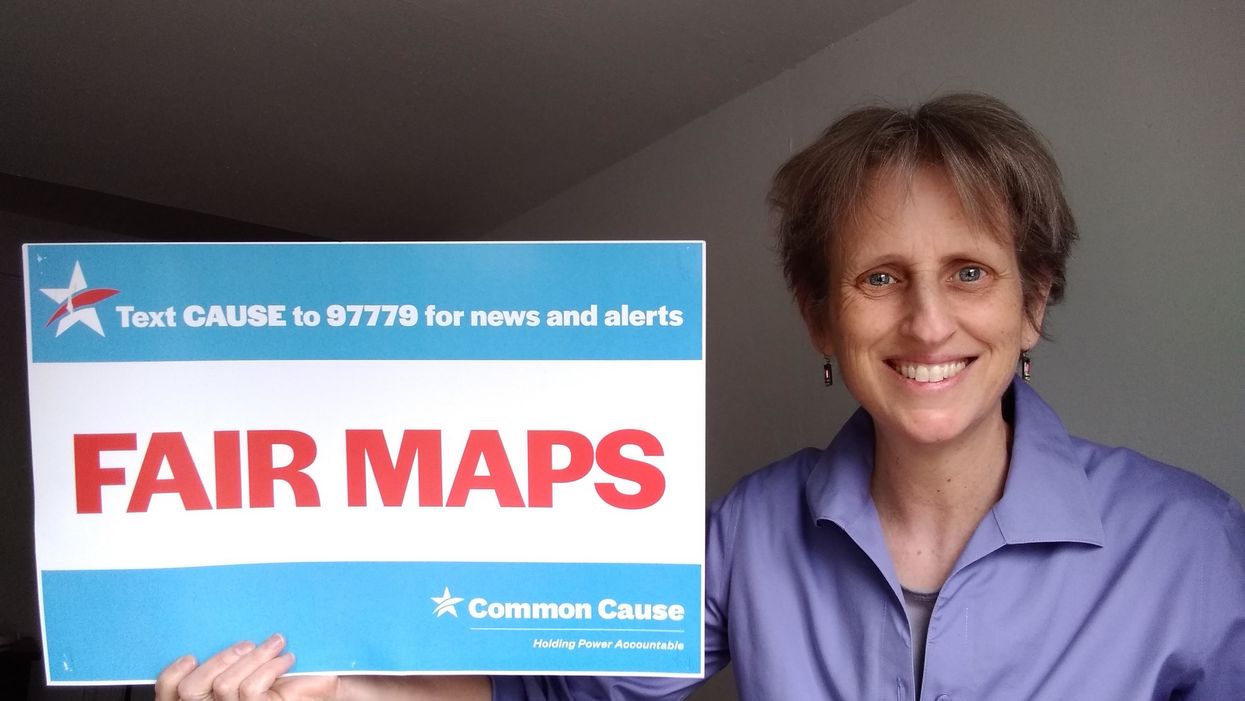After organizing the Voters Not Politicians 2018 ballot initiative that put citizens in charge of drawing Michigan's legislative maps, Fahey became founding executive director of The People, which is forming statewide networks to promote government accountability. She interviews a colleague in the world of democracy reform each month for our Opinion section.
Kate Titus is executive director of Common Cause Oregon, whose goal is to make the political process fair, transparent and more democratic. She is currently helping to lead People Not Politicians Oregon, a coalition circulating petitions to get an initiative on the November ballot that would create an independent commission to draw boundaries for the Legislature and congressional districts.
Our recent conversation has been edited for clarity and brevity.
Fahey: You're approaching a big deadline. What needs to happen for the redistricting initiative to have a chance to be successful?
Titus: We need 149,360 signatures to get our proposal on the ballot, so as Oregonians we need to step up. Registered voters need to find a petition and print, sign and mail it to us by June 26 — the end of next week. They can also email us to request a petition be mailed to their address. It can make all the difference if folks who support this get two or three others to sign with them. We've got a great opportunity to make the democratic process more democratic. The process for drawing district lines has been rigged because legislators have an inherent conflict of interest. We know there's a better way.
Fahey: Tell us a little about your background.
Titus: I've been organizing ever since I can remember, but I started working with Common Cause about eight years ago. I grew up in the 1960s and '70s and witnessed civil rights movements that made me understand that it's on us to create change. The leadership of people who leaned in and made great progress inspired me to advocate for voting rights today. It was, and continues to be, a huge challenge. We've come a long way but have much work ahead. There are still ways in which organized forces try to suppress some faction of the vote.
Fahey: Tell me more about what People Not Politicians Oregon is advocating for.
Titus: Our coalition is good governance organizations and others from all across the political spectrum. We seek to change redistricting and put it into the hands of an independent commission with clear guidelines and transparency. It would include four Democrats, four Republican and four registered voters unaffiliated with either major party.
Fahey: Share a bit about Oregon's history with gerrymandering.
Titus: Most people don't know we've had a problematic history with redistricting. It only happens every 10 years, so a lot of people aren't old enough to know what happened in the 1950s, let alone the 1910s. The Legislature, for about five decades, didn't adjust districts at all, as they're supposed to, so votes had unequal weight. The courts forced the state to start redistricting again in the latter half of the 1900s — but it was contentious, and each time it was challenged and ended up going to the secretary of state or the courts. Even with the best intentions, whichever party is in control views things through a lens of maintaining power, not of representing the interests of the people.
Fahey: What would be the positive impacts of this initiative?
Titus: Once we do pass this, we'll have a more transparent process where districts are more reflective and responsive. Most Oregonians vote for one party or another, but those are not the only interests we care about. We may also share interests based on racial, geographic or other factors. People of color, women and young people are all significantly underrepresented in state office. There's no perfect way to draw lines, but an independent and community-driven process is better than one driven by political parties and legislators, who have conflicts of interest.
Fahey: How has Covid-19 impacted your ability to get the proposal on the ballot?
Titus: It's harder to get signatures, because we can't go door to door. There are no busy gatherings with lots of people, and we can't sign up people with clipboards face-to-face. We've mailed out the signature petitions to over a million voters. And we're using email, social media and remote person-to-person methods of contact to get the word out.
Fahey: How have community members in Oregon become involved?
Titus: A team of Common Cause volunteers is working remotely: calling, emailing and texting to spread the word. Other organizations are organizing volunteers spreading the word through social media and their personal networks. And volunteers in Salem can go into an office and process thousands of petitions coming in daily — while socially distanced.
Fahey: What can people do to help?
Titus: It's an enormous task that will take Oregonians stepping up to succeed. We have a letter to the editor tool on our website. Spreading awareness through social networks and taking the time to sign the petition are great ways to help.
Fahey: What has been your most gratifying moment in this campaign?
Titus: Seeing people step up in the middle of a major health crisis. We have volunteers checking in daily on Zoom to compare notes. They feel how hard it is to gather signatures one by one — but when you look at the tens of thousands of signatures combined, it makes a difference.
Fahey: If you were speaking with a high school student or new immigrant, how would you describe what being an American means to you?
Titus: We're all part of many communities — families, neighborhoods, geographic areas. But we're also part of an experiment in democracy. We have yet to realize the full promise of American democracy. We have yet to see Americans obtain full and equal rights. But as an American, I get to be part of that experiment, and you do too.




















Trump & Hegseth gave Mark Kelly a huge 2028 gift